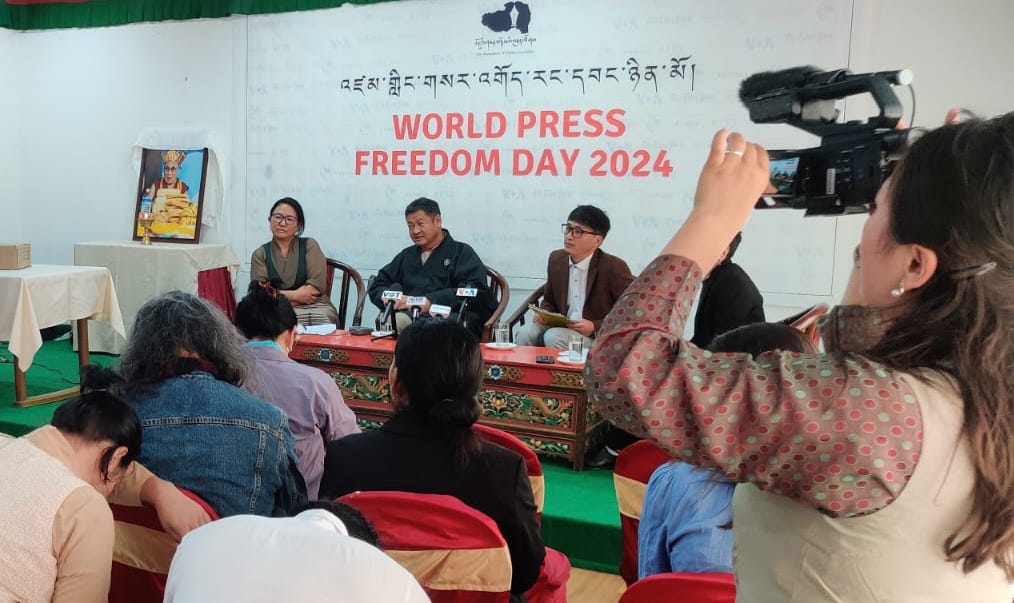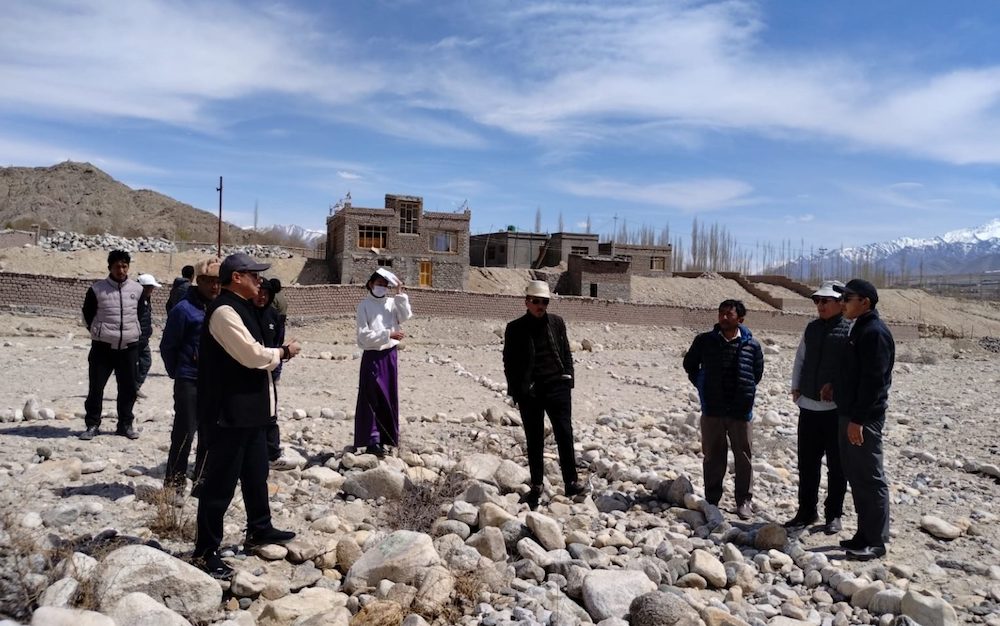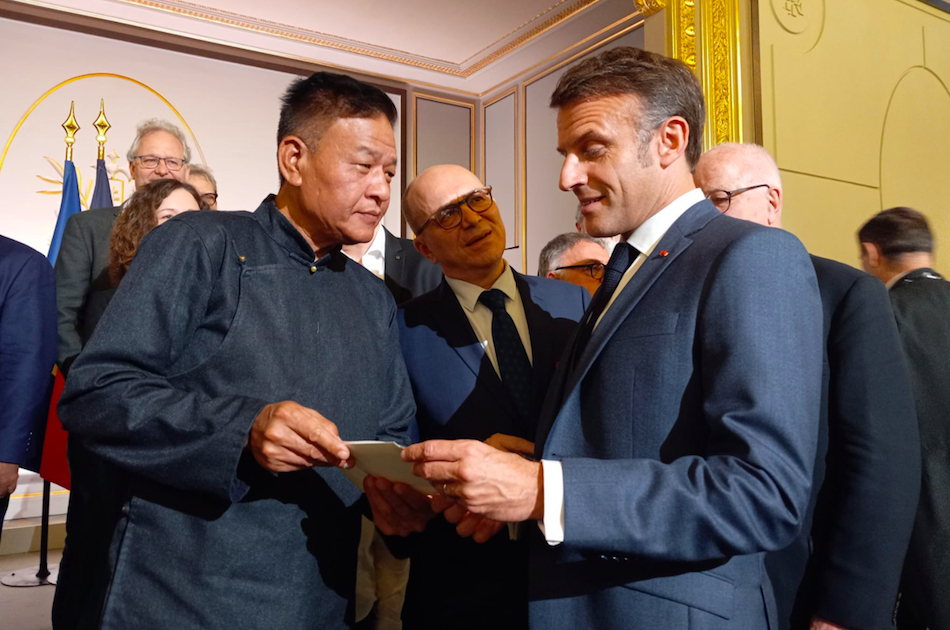By Billy Jackson
The National Review recently published an editorial by Daniel Griswold entitled, “To the Benefit of Both: Why trade with the PRC?” in which the author defended a vigorously open policy of trade between the United States and China. According to the editorial, linking human rights concerns to trade is a mistake borne of historical ignorance and a short-sighted lack of understanding that will mutually harm both parties. As the president and founder of the Relief Alliance, a non-profit NGO that battles human rights abuses worldwide, as author of the soon-to-be released book We Sing a Song of Sadness, documenting the illegal imprisonment and torture of Tibetan political prisoners, and as the interviewer of more than one hundred former Chinese prisoners, I emphatically disagree with his assertions.
Griswold contends that “Chinese workers gain from the opportunity to sell the products of their labor to a global market.” This claim, at the very beginning of the article, discredits the author immediately, because it assumes that Chinese workers are free to be opportunistic. In fact, one can never be sure that the products the United States imports from China were made in a decent factory or by one of about six million Chinese slaves working out of the laogai – the Chinese version of a Soviet gulag – or by any one of millions more who work in filthy industrial plants or sweatshops without the right to unionize and for wages that can be defined as nothing but exploitative. How can we speak of Chinese workers benefiting from international trade when literally millions of them labor in deplorable conditions and receive little or no compensation for their exertions? This isn’t about helping the Chinese worker, because increased trade with China won’t help the “Chinese worker” at all; it will, however, line the pockets of Party officials and factory owners, thus buoying their positions and power. To speak of Chinese workers as free and independent laborers simply waiting for the occasion to expand their endeavors illustrates the author’s total lack of knowledge on the actual situation of the “Chinese worker.” I suggest the author read the latest New York Times article on Chinese migrant workers to get a feel for the actual position of the many millions who will never benefit from increased trade as long as the current regime and its corrupt system of oppression remains in place.
As Americans, we must not forget the noble principles that defined the Founding of our country. These include “life, liberty, and the pursuit of happiness” as well as the affirmation that “all men…are endowed by their Creator with certain unalienable rights.” Did these statements become obsolete when nobody was looking? Are they merely pretty words, lacking substance but sounding just grand? We may answer emphatically, No!”, yet if the opportunity arises to “bolster our economy,” as Griswold puts it, these principles mean little, and we choose to instead confirm the stereotype that has defined American foreign policy for decades: human rights are important, but The Mighty Dollar is more important. Just the same, we like to rationalize and make ourselves feel better by calling it “mutually beneficial” – it will help them (according to ambiguous, ignorance-based assumptions) and will strengthen our economy (which is reason enough for just about anything!). China is the world’s worst tyranny, yet the United States, founded on the above-mentioned values, not only engages in hearty trade but also grants that country an advantageous relationship through Most Favored Nation status. Oh, the irony.
And while Griswold argues that increased economic interaction will actually result in a decrease in human rights violations (the same old argument that has been circulating for at least ten years), this has certainly not been the case historically. According to U.S. StateDepartment reports published within the last year, China is still guilty of “numerous and serious abuses,” including death sentences for illegal Christian affiliations, religious repression, imprisonment, and torture of Tibetan monks and nuns as well as Muslim Uighurs, extrajudicial killings, torture and mistreatment of prisoners, forced confessions, arbitrary arrest and detention, lengthy incommunicado detention, and denial of due process. In Tibet and Xinjiang, human rights abuses are on the increase, and security is tightening. “The [Chinese] Government continues to restrict tightly worker rights, and forced labor in prison facilities (Griswold’s opportunistic “Chinese workers”?) remains a serious problem. Child labor exists and continues in rural areas.” And all of this despite enthusiastic trade with the United States – under the banner of MFN – for years. “If experience is any guide,” as the editorial puts it, then increased trade will do nothing but perpetuate the oppressed status of millions of exploited workers by shoring up the Party leadership and letting the oppressed know that cheap merchandise at Wal*Mart is more important to America than dignity and human rights.
Indeed, trade is without doubt linked to human rights, especially in China where the profits of that trade don’t trickle down to the “Chinese worker.” Strengthening our own economy should never be used as justification for immoral and corrupt behavior. Sorry, Daniel Griswold – not matter how you try to explain it away, putting money into the pockets of tyrants is never the “beneficial” thing to do.
To the Benefit of Both: Why trade with the PRC?
By Daniel T. Griswold
National Review
September 15, 2003, Monday
SECTION: Article; Volume LV, No. 17
China looms as the next big thing in trade-policy discontent. An unlikely coalition comprising the National Association of Manufacturers, union leaders, anti-trade Naderites, and conservative lawmakers critical of China’s human-rights record is complaining with growing volume about rising imports from the Middle Kingdom.
Like the fears about Japan in the late 1980s, anxieties about trade with China lack a firm foundation. Despite the discomfort it causes for certain U.S. producers, trade with China is mutually beneficial. Chinese workers gain from the opportunity to sell the products of their labor to a global market; Americans — consumers and producers alike — benefit from the low prices, variety, and competition of imports from China. Raising barriers to commercial engagement with China would damage our economy and undermine security and human rights.
Most American families benefit unambiguously from trade with China. The clothing, furniture, toys, and electronics that make up a big chunk of Chinese imports keep prices down in American stores and raise the real wages of American families, especially those with middling or low incomes. Lower-cost parts and other intermediate goods from China — such as computer hard drives and plastic moldings — allow American manufacturers to retain their competitive edge in global markets.
Although imports from China have grown rapidly, they are nothing like a flood. In 2002, Americans bought $125 billion worth of goods made in China — which represents only 10 percent of our total imports ($1.2 trillion) and a tiny fraction of our $10.4 trillion economy. There is nothing wrong with Americans’ spending 1 percent of their income on products made by the one-fifth of mankind that lives in mainland China.
And, despite the warning that U.S. factories are moving in droves to China, American investment in the mainland remains modest. Annual outflows of manufacturing investment to China average about $1 billion, less than 1 percent of the $200 billion or so that is invested each year in our own domestic manufacturing capacity. At the end of 2001, American companies directly owned and controlled $7 billion worth of manufacturing investment in China — which amounts to less than 2 percent of the total stock of U.S. direct manufacturing investment abroad, and far less than the $35 billion American companies own in the (tiny) Netherlands.
Critics ignore China’s own growing appetite for goods. While China is the world’s sixth-leading exporter, it is also the world’s sixth-leading importer. Because of soaring domestic demand, it has now displaced the United States as the world’s chief importer of steel, and has become one of the world’s top markets for automobile sales. While America’s total exports were falling in 2002, our exports to China rose 14.4 percent. How will the people of China — or India, or other developing countries — become middle-class consumers if we do not allow them to participate in the global economy?
So much for the economic worries. National-security concerns about China are not so easily dismissed — especially those regarding technology-related exports. The U.S. government wields extensive power to block exports of sensitive military and “dual use” technology, and the government should use that power when necessary. We should not be selling cutting-edge military technology to China that could then be sold to our enemies or otherwise turned against us. But that is not what really bothers critics of trade with China. What they object to are imports from China, believing that enriching China through trade will threaten American security.
That was the view of the U.S.-China Security Review Commission — a panel established by Congress in 2000 to monitor trade with China — which warned in a 2002 report, “If China becomes rich but not free, the United States may face a wealthy, powerful nation that could be hostile toward our democratic values, to us, and in direct competition with us for influence in Asia and beyond.” This critique is flawed. First, trade with the United States has not been the most important factor in China’s development. Far more important has been China’s own internal liberalization and unilateral opening up of its economy to foreign competition. If the U.S. market had been closed to Chinese goods, China would still have grown rapidly in the past 25 years, although not as rapidly as it actually did.
Second, even if we could slam the brakes on China’s economic growth, would we want to? A dramatic slowdown would cause hardship for hundreds of millions of Chinese families and condemn millions of children to lives of perpetual poverty without the hope of further education and upward mobility. A poor, stagnant, and frustrated China would be more unstable and hostile to American interests than an energetic and prosperous one. A policy of disengagement from China would probably create the very enemy its proponents claim to be protecting us from.
China’s burgeoning commercial ties have already moderated its international behavior. The incident surrounding the downing of a surveillance plane over China early in President Bush’s term was resolved quickly in some measure due to China’s growing commerce with the United States. And, China is finally playing a constructive role in policing Asia’s true problem child, North Korea, in part because South Korea is now among its top five trading partners. Its equally huge trade and investment ties to Taiwan give the Chinese government a powerful reason to avoid military conflict over the island.
Conservative critics of trade with China mingle their economic and security objections to China trade with concerns about human rights. It is true that the Chinese government systematically abuses the rights of its citizens to speak freely, organize, worship, and raise children. But disrupting our mutually beneficial trade relationship in the name of protecting those rights would be futile and counterproductive. After two decades of reform and rapid growth, China’s expanding middle class is experiencing for the first time the independence that comes with owning a home, traveling abroad, and working with others in an economic enterprise free of government control. The numbers of telephone lines, mobile phones, and Internet users have risen exponentially in the past decade. Tens of thousands of Chinese students study abroad every year. Rising incomes have allowed Chinese families to buy their way out of the one-child policy. China’s economic reforms have opened the door for greater religious activity as well. More than 100 Western missionary organizations are active in China, distributing millions of Chinese-language Bibles.
Trade sanctions have failed to improve human rights in such backwaters as Cuba, Sudan, and Burma. Meanwhile, trade, economic reforms, and growth have tilled the soil for democracy in South Korea, Taiwan, Chile, and Mexico. If experience is any guide, we can encourage political and civil freedoms more effectively in China through trade and development than through sanctions. The best policy to promote human rights in China would combine shining the spotlight of official criticism on China’s abuses with encouraging an independent civil society through commercial engagement.
A recent study by the Chinese Communist party’s Central Organization Department noted with concern that “as the economic standing of the affluent stratum has increased, so too has its desire for greater political standing.” The study concluded that such a development would have a “profound impact on social and political life” in China. By maintaining normal trade relations with the world’s most populous nation, we bolster our economy, guard our security, and encourage the “affluent stratum” that is making China’s rulers increasingly nervous.









